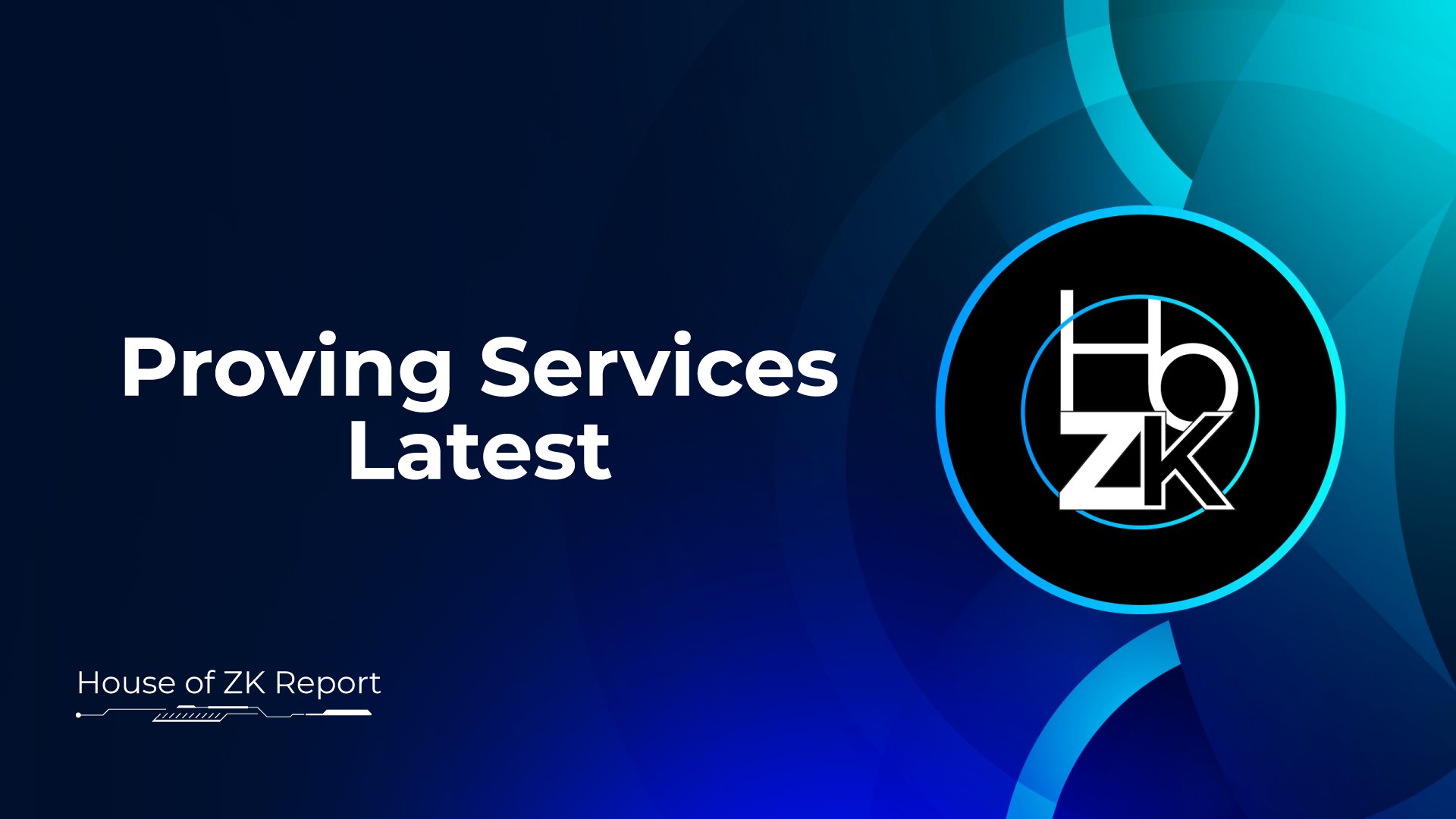
Here we report on the progress of the leading builders in the Proving Service ecosystem, documenting recent significant releases, technical breakthroughs and general updates.
Featuring: @brevis_zk, @cysic_xyz, @fermah_xyz, @MarlinProtocol, @vlayer_xyz, @zan_team, & @thezkcloud.
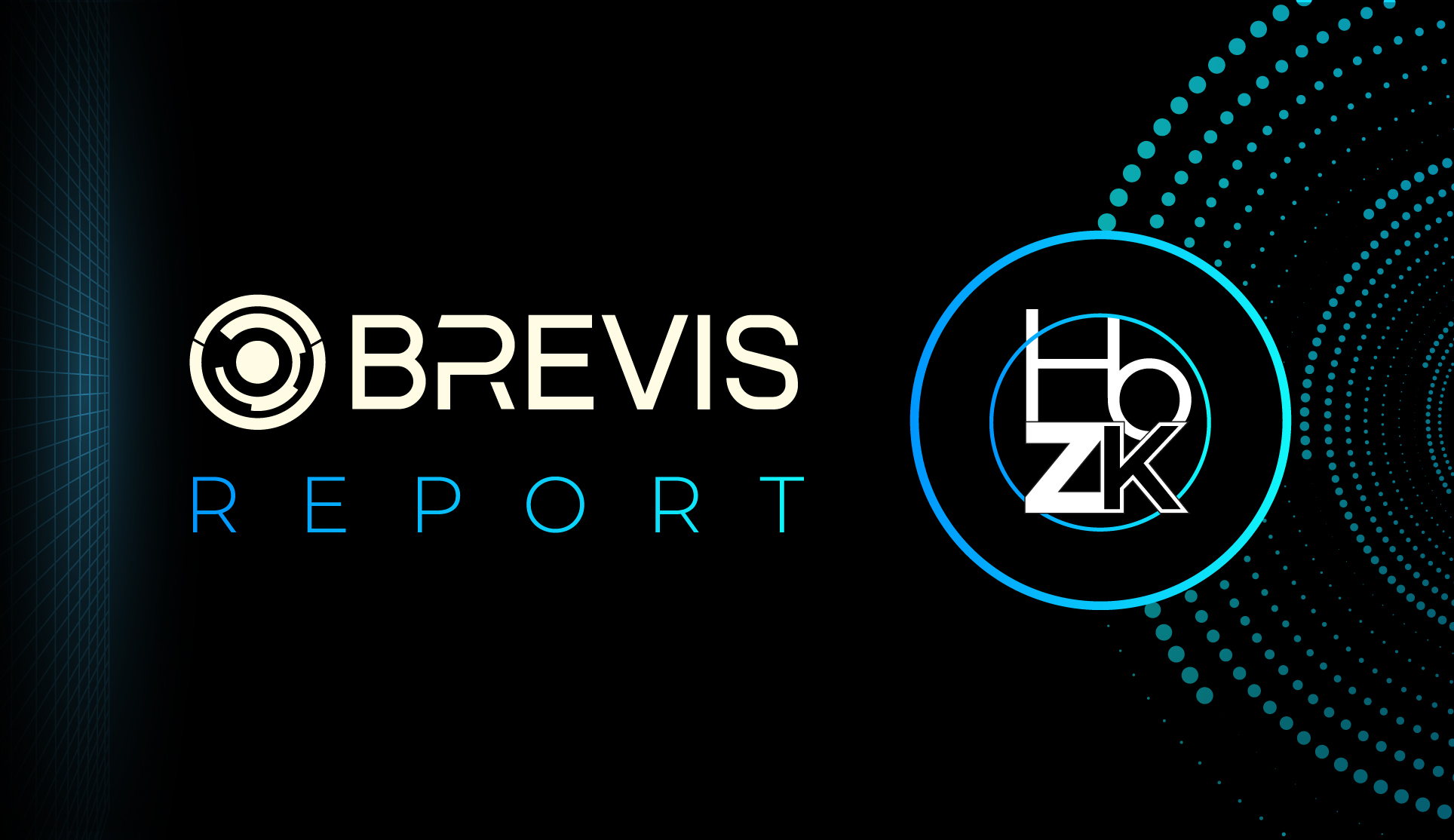
@no89thkey, Co-founder of @brevis_zk, joined @alicelingl on @HouseofZK Radio’s “Brevis Special” to discuss the project’s advances in real-time proving with Pico Prism:https://x.com/i/broadcasts/1dRJZaXNPDoGB
He explained that Brevis originated from DeFi’s demand for customized trading experiences, where on-chain computation remains too costly. By shifting complex tasks off-chain and verifying them efficiently on-chain, Brevis aims to make scalable, verifiable compute practical.
Their modular glue-and-co-processor architecture underpins Pico Prism’s ability to achieve near real-time @eth_proofs, supporting applications from incentive programs to dynamic DeFi fees.
Events
This month, Brevis is joining and co-hosting multiple events, including:
• Nov 16 - Ethereum Cypherpunk Congress #2:https://luma.com/u2sw5kpv
• Nov 18 - ZKONNECT: organized by Brevis, co-hosted with House of ZK:https://luma.com/jix04ltq
• Nov 19 - AdoptionCon | Devconnect:https://luma.com/adoptcon25
• Nov 19 - Verifying Intelligence: co-hosted by House of ZK and Brevis:https://luma.com/xevcy7za
• Nov 21 - ZK Real World Summit:https://luma.com/m2czgwue
• Nov 21 - Zero Hour Rooftop: organized by Brevis, co-hosted with @fenbushi: https://luma.com/2g2ney1h
• Nov 22 - PancakeSwap Meetup:https://luma.com/80qgbv5j
Find more Brevis news in our recent Brevis Special Report:
https://hozk.io/journal/the-brevis-special-report-2025-11-05
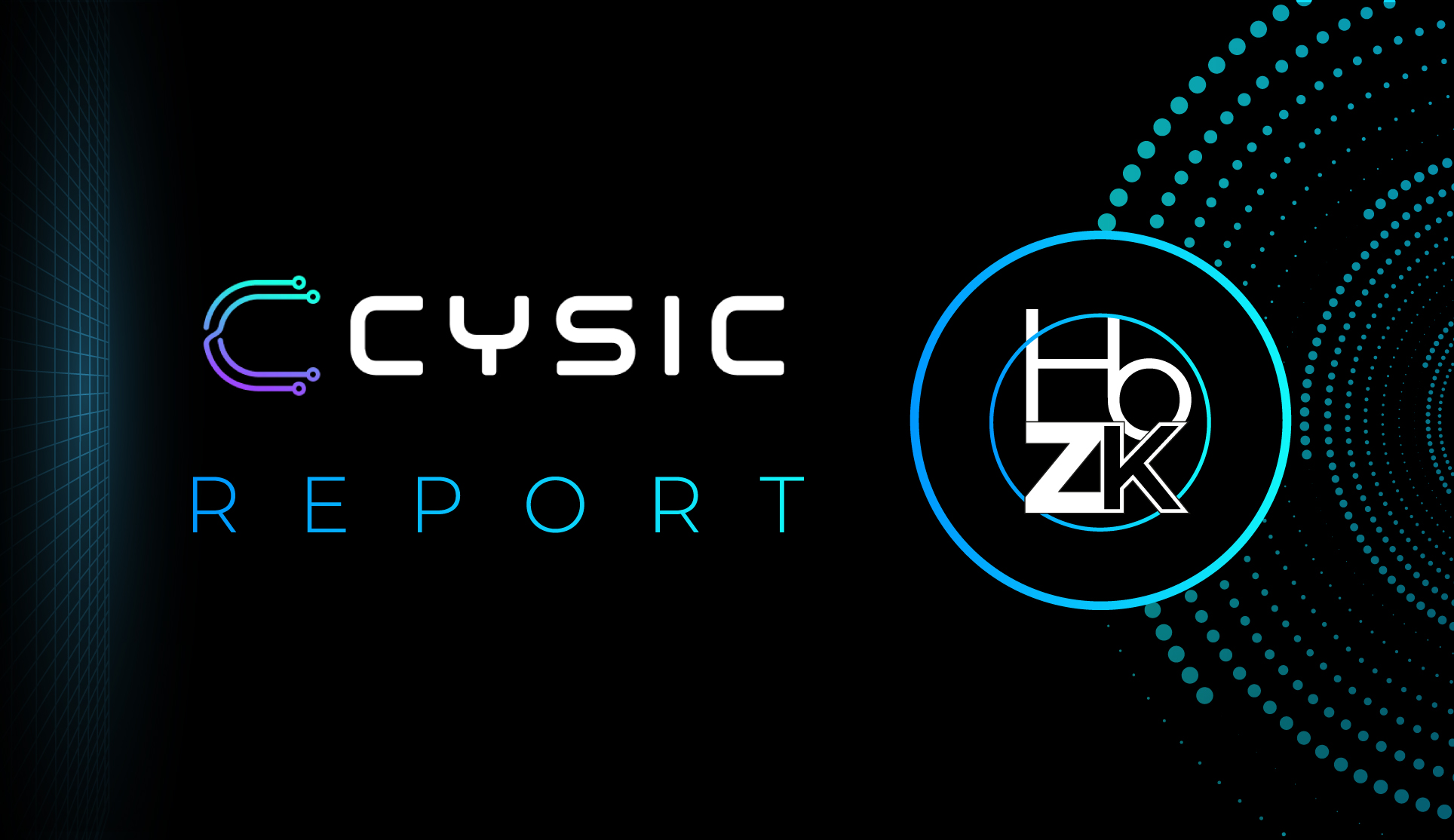
Venus
In the recent @eth_proofs Call #6, @leofanxiong (Co-founder @cysic_xyz) shared updates on Venus, a heterogeneous Real-Time Prover (RTP) integrating GPUs and FPGAs for @ethereum. Timestamp - 00:36:00: https://youtube.com/watch?v=9zw5jOMB9UY&list=PLJqWcTqh_zKGthi2bQDVOcNWXCSvH1sgB&index=6&t=909s
The team migrated all 50+ chips’ TraceGen function to GPU, achieving up to 325× speedup and around 30× even with PCIe. Further kernel fusion added 15-30% gains, making Venus about 2-2.1× faster end-to-end than Hypercube by @SuccinctLabs.
Roadmap
Cysic has presented a detailed roadmap outlining its three-layer strategy for building a decentralized compute ecosystem: https://x.com/cysic_xyz/status/1983200080690852203
Highlights:
• Cysic ZK focuses on hardware acceleration for verifiable computation, advancing from FPGA prototypes to full ASIC design for zero-knowledge proofs and AI processing.
• Cysic Network establishes a coordination layer linking provers, verifiers, and clients through decentralized infrastructure, enabling verifiable performance and AI service integration.
• Cysic Miner creates the access layer, offering plug-and-play hardware that allows users to contribute computing power and receive yield from real workloads.
Publications
Cysic published two articles diving into the fundamentals of compute and ZK:
• One piece looks at the meaning of compute itself - how chips like CPUs, GPUs, and ASICs drive everything from AI to blockchain, and why access has become centralized and expensive. Cysic presents ComputeFi as a way to make computing power verifiable, distributed, and owned by users rather than rented: https://x.com/cysic_xyz/status/1981440309549834557
The other focuses on ZK, explaining how it proves correctness without exposing data and why that process consumes vast processing power. It outlines how distributed proving networks and specialized hardware turn verification into a measurable, efficient layer of computation: https://x.com/cysic_xyz/status/1986455249977033183
CyRunners Ambassador Program
Finally, the project has launched the CyRunners Ambassador Program, inviting community members to help grow the ComputeFi ecosystem: https://medium.com/@cysic/cyrunners-ambassador-program-62e5e36908ad
CyRunners will create content, engage in online discussions, and promote the concept of decentralized computing. Participants will gain access to internal team channels and contribute to shaping the project’s direction.
The program is now open for applications through the official Cysic website.

Airbender Proofs
During @eth_proofs Call #6, @vanishree_rao (Founder of @fermah_xyz) shared that Fermah is now generating Airbender proofs. Timestamp - 00:17:40: https://youtube.com/watch?v=9zw5jOMB9UY&list=PLJqWcTqh_zKGthi2bQDVOcNWXCSvH1sgB&index=7&t=909s
She explained how the goal is to bring diversity of proof systems, demonstrate Fermah’s ability to integrate any prover quickly, and contribute to @zksync’s Airbender.
Fermah’s team automated proof generation and orchestration, managed storage and retries internally, fixed GPU proving issues, restored builds, and submitted upstream code improvements.
Publications
Vanishree also published two articles examining the security flaws and risks that arise from blockchain systems’ dependence on offchain infrastructure:
• In the first, she argues that most crypto losses stem not from weak protocols but from fragile offchain components like fund managers, oracles, and bots. Using @StreamDefi as an example, she shows how architectures that push core logic offchain turn decentralization into an illusion of safety: https://x.com/vanishree_rao/status/1985829178290401646
• In the second, she analyzes @MoonwellDeFi incident, where a faulty offchain price feed caused major losses even though the smart contracts behaved correctly. Through this case, she highlights how relying on external data strips away onchain guarantees, reducing security to a “God-save-my-money” level of trust: https://x.com/vanishree_rao/status/1987209503331496085
Media
Lastly, Vanishree revealed an upcoming appearance on @HouseofZK Radio podcast with host @alicelingl, hinting that their sure-to-be insightful conversation is soon to be released: https://x.com/vanishree_rao/status/1981448562689945867

@MarlinProtocol published an article explaining how ERC-8004 and Trusted Execution Environments (TEEs) together enable a complete stack for the emerging machine economy: https://x.com/MarlinProtocol/status/1983149461334278480
It describes the “Temple of Autonomy”, where blockchain serves as the foundation and four key pillars - Identity (ERC-8004), Language (A2A), Money (x402), and Muscle (Marlin Protocol) - support autonomous agents that can identify, communicate, transact, and compute without human control, forming a self-sustaining digital economy.
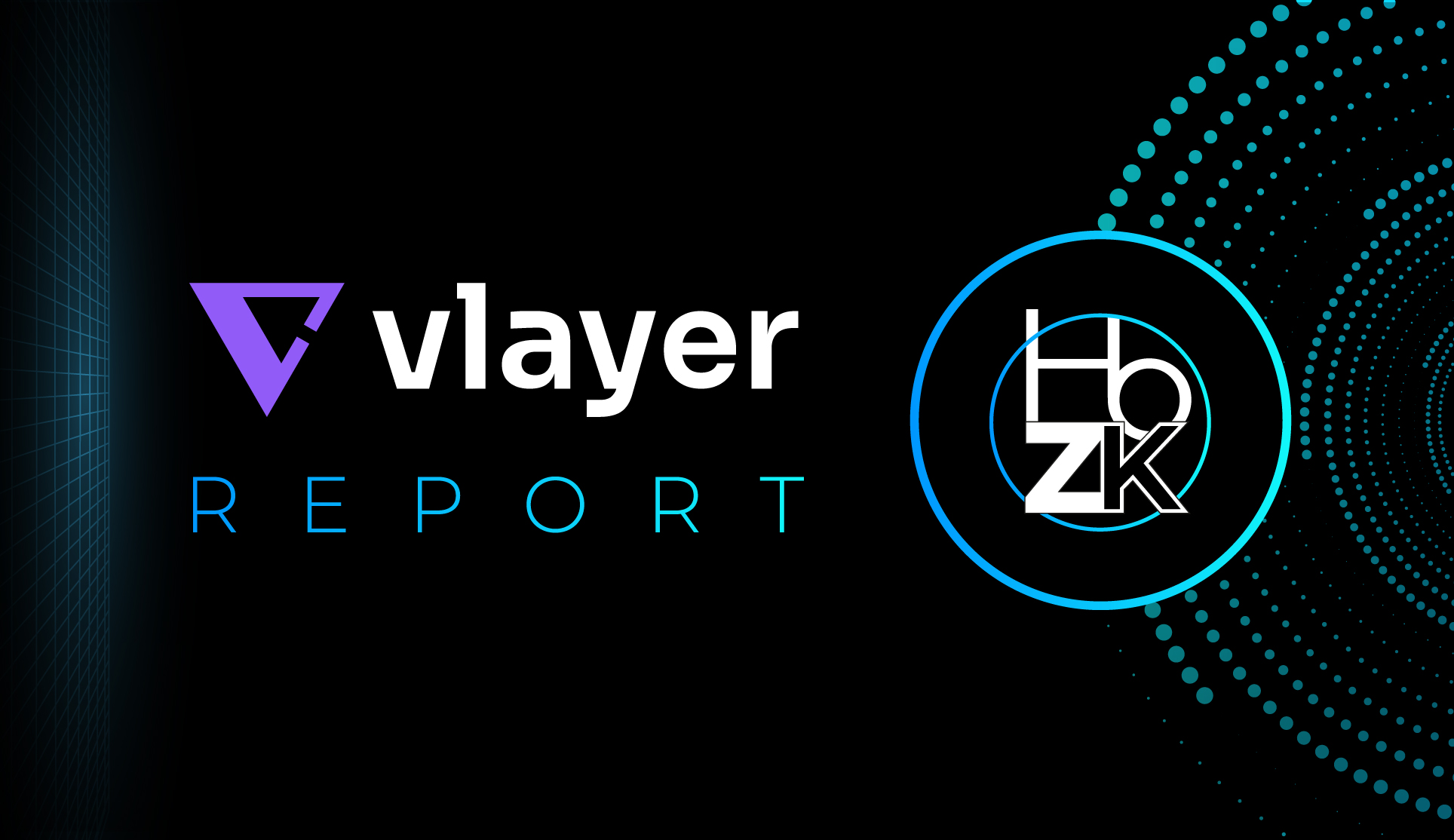
@vlayer_xyz will take part in zkTLS Day at Devconnect 2025 in Buenos Aires on Nov 19th, together with @tlsnotary, @primus_labs, and @reclaimprotocol: https://x.com/vlayer_xyz/status/1986026575515590847
The event focuses on the emerging zkTLS standard that enables privately verifiable web data. Participants will attend talks and workshops exploring cryptographic methods, developer tools, and applications linking internet data with blockchain systems.
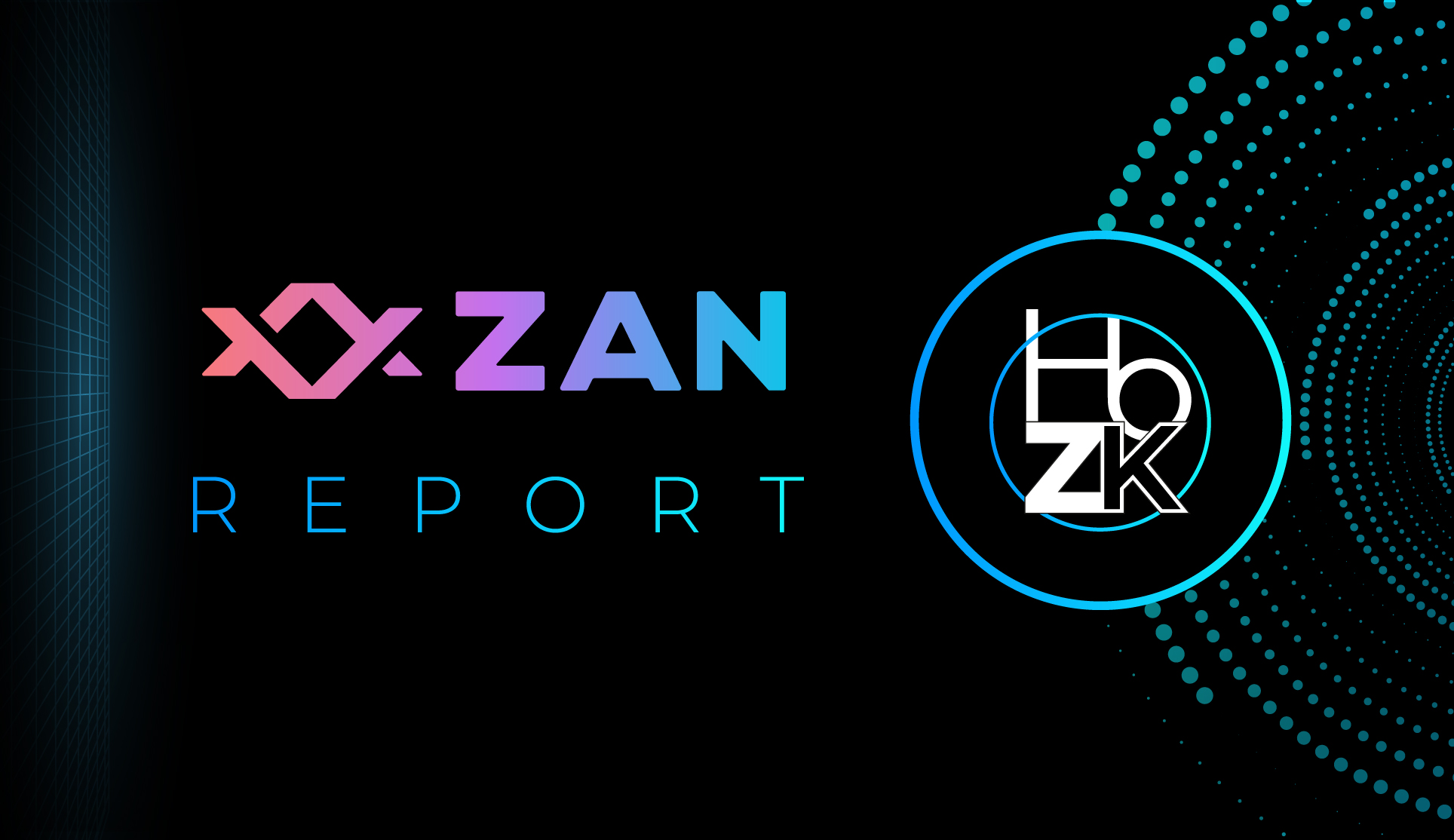
Monthly Report
@zan_team released its October report: https://x.com/zan_team/status/1987037023744479654
Highlights include:
• Upgraded team collaboration feature with enhanced multi-scenario application support.
• New credit balance query API added to the Product Console.
• @pharos_network Atlantic testnet node now live with a dedicated service cluster for higher availability.
• Launch of NitrooZK-stwo v1.0.2 GPU engine with new hash functions.
• Anniversary discounts on node service plans.
Publications
Zan published two articles about blockchain security and Web3 payment innovation:
• The first article explains why “address collisions” are mathematically impossible, showing that randomly hitting a funded wallet is about 10³² times harder than winning the lottery. It reminds readers that no one has ever cracked a private key - wallet losses happen from human mistakes, not broken math: https://medium.com/@zan.top/web3-beginner-series-want-to-get-rich-by-luck-lets-talk-about-blockchain-address-collisions-4f98e4a4d7e7
• The second article explores @coinbase's new on-chain payment protocol x402, which enables pay-per-use APIs across chains like Base and Solana. It demonstrates how developers can integrate Web3 payments with simple middleware while noting adoption challenges for enterprise systems: https://medium.com/@zan.top/web3-beginner-series-exploring-the-new-on-chain-payment-protocol-x402-f77149f87732
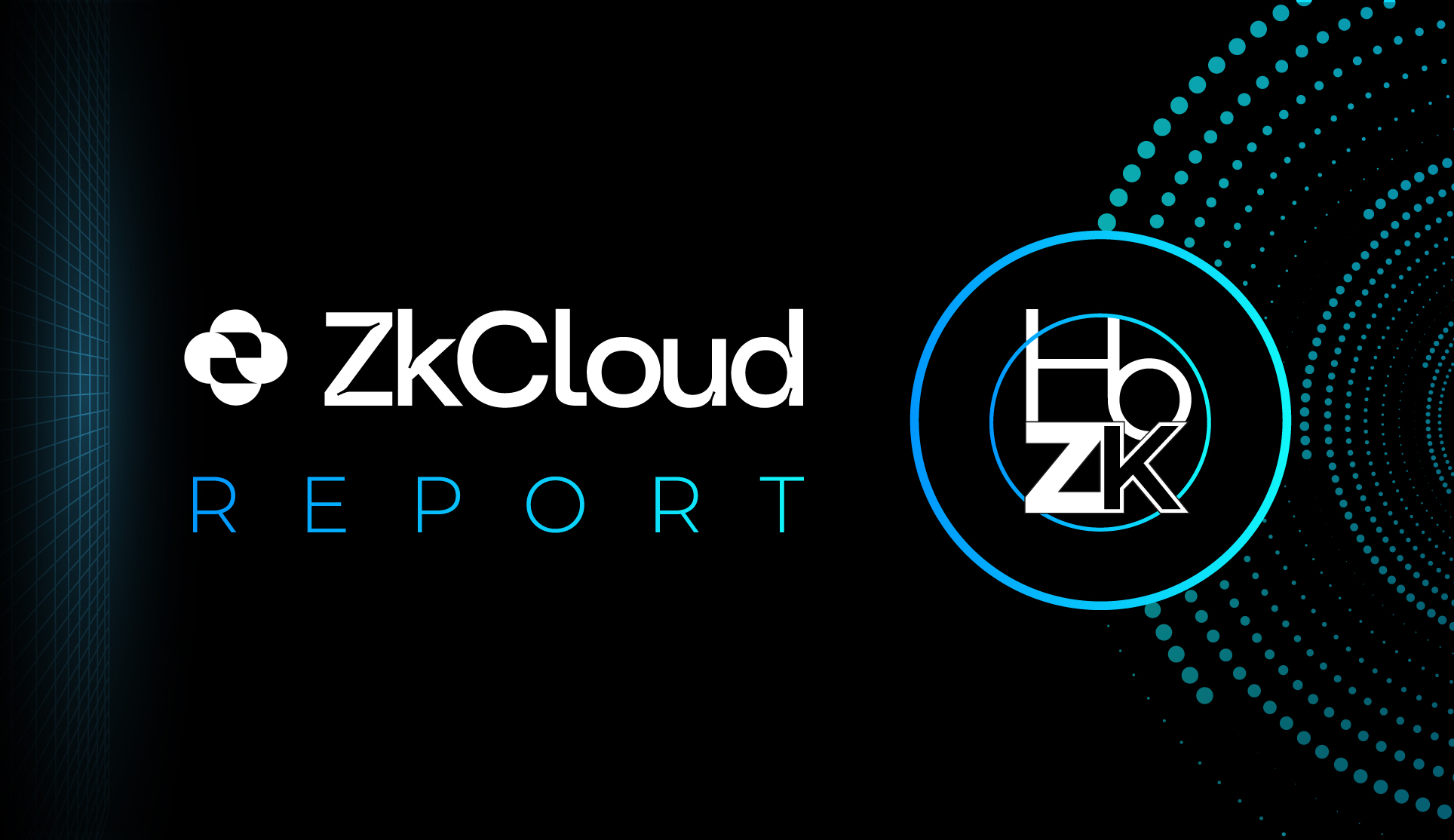
@thezkcloud announced progress toward real-time proof generation on @ethereum: https://x.com/thezkcloud/status/1985664739456802876
Using a 48×4090 GPU cluster powered by @ziskvm’s zkVM, the system now averages 9.3 seconds per Ethereum block and aims to maintain proofs under 12 seconds.
The project reports a current cost of $0.0857 per block, enabling proofs to match blockchain speed.